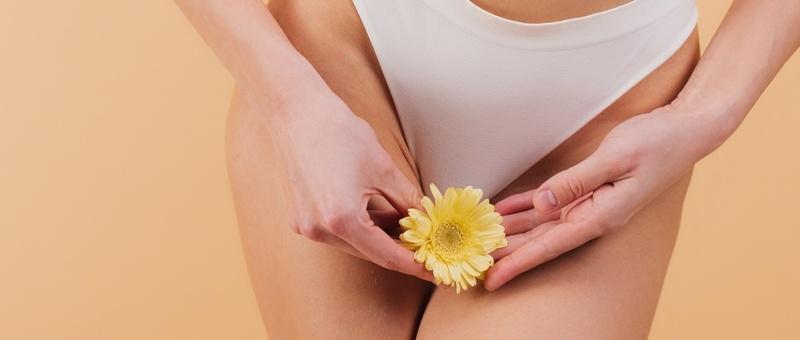
Qu'est-ce que la dermatite vulvaire ?
Révision par les pairs par le Dr Colin Tidy, MRCGPDernière mise à jour par Victoria RawDernière mise à jour : 2 juillet 2025
- TéléchargerTélécharger
- Partager
La dermatite vulvaire affecte la peau autour du vagin. Son traitement dépend de la cause sous-jacente. Nous avons demandé à un dermatologue de nous aider à comprendre pourquoi vous pouvez souffrir de dermatite vulvaire et comment elle peut être traitée.
Dans cet article :
Vulvar dermatitis is a skin condition that causes itching, irritation, and inflammation of the outside area surrounding your vagina (vulva) - including your clitoris and labia. Your vagina and anus are inside your body so are not part of the vulval area.
Poursuivre la lecture ci-dessous
What are the symptoms of vulvar dermatitis?
Common signs of vulvar dermatitis include dry skin, itching, burning, and the appearance of a red rash.
Other symptoms of vulvar dermatitis include:
Sore skin that feels like it's stinging.
Skin that is thicker in the affected area.
Areas of skin that appear red or darker.
Skin that feels wet and is leaking fluid.
Pain in your vulva area during sex, when inserting a tampon, or during a medical internal pelvic exam.
Dr Sophie Momen, Consultant Dermatologist, Cadogan Clinic, London says that vulvar dermatitis can impact your quality of life, causing discomfort and sometimes embarrassment if affecting intimate relationships.
"The British Association of Dermatologists (BAD) and the National Eczema Society (NES) have excellent informative resources, including local and national support groups," she says. "However, it's important to have any symptoms assessed by a healthcare professional.
"Any rash or lump and bump that does not go away - either on its own or after a course of prescribed treatment - may suggest a more serious underlying condition."
What causes vulvar dermatitis?
Vulvar dermatitis may be caused by vulvar eczema (atopic dermatitis) or contact dermatitis.
Momen explains that if your vulvar dermatitis is caused by vulvar eczema, you may have a history of eczema in other areas of your body.
"You might also have had other atopic diseases, such as hay fever, allergies and rhinitis - a condition where your nose becomes inflamed by something you're allergic to," she explains. "If it is due to an allergy, then you may not have had eczema previously."
According to Momen, vulval skin is sensitive and can be irritated easily by certain irritants, allergens and products.
Il s'agit notamment de
Cosmetics and toiletries - for example, soaps, shampoos, perfumes, deodorants.
Toilet wipes.
Panty liners.
Synthetic material - for example, nylon.
Lubricants.
Food preservatives.
Nickel.
Pee.
Poo.
Poursuivre la lecture ci-dessous
How is vulvar dermatitis treated?
Treating vulvar dermatitis depends on the underlying cause.
Momen explains that for cases where vulvar eczema is the cause, then your doctor may prescribe an emollient and a steroid ointment.
She adds that it's important to receive an accurate diagnosis so your doctor can rule out other causes of vulva rashes - such as psoriasis, lichen planus or lichen sclerosus.
"They will need to take a full detailed history and examination," says Momen. "You will be asked about conditions that run in your family, your lifestyle and how you care for your skin in this area."
In some cases, you may be referred to a specialist, as patch testing could be required to rule out an allergic component. A sample of your skin (biopsy) may also be needed to confirm the diagnosis.
If your vulvar dermatitis is due to an allergy, then avoiding the allergen will hopefully ease your symptoms.
Momen says that treating the affected area will involve avoiding any substances that you are allergic to, or that may irritate the skin.
How to treat the area:
Wash once a day with lukewarm (not too hot) water.
Avoid using soaps for washing.
Wear cotton underwear and loose-fitting clothing.
Do not use feminine hygiene products and douching.
Emollients and steroid ointments, and soap substitutes may also be prescribed by your doctor.
How can vulvar dermatitis be prevented?
Completely preventing flare-ups of vulvar dermatitis can be challenging. However, if your condition is triggered by an allergy, following the recommended lifestyle changes and avoiding known allergens or irritants can significantly lower your chance of developing - or redeveloping - it.
Momen concludes by saying that the skin around your vagina should be looked after with care. Your vaginal skin is very sensitive and can be irritated easily.
"Washing your vaginal area once a day is enough," she says. "It's better to keep things simple and to wash with water and a soap substitute - such as epaderm ointment. Avoid any soaps, cosmetics, wipes, perfumes, deodorants or hygiene products in this delicate genital area."
Choix des patients pour Problèmes vaginaux et vulvaires

Santé des femmes
Comprendre les kystes vaginaux
La découverte d'un kyste à l'intérieur et autour du vagin peut être inquiétante et inattendue. Cependant, ces kystes sont très courants et il n'y a généralement pas lieu de s'inquiéter. Nous vous expliquons ici ce que sont ces kystes et les causes possibles de leur apparition.
par Victoria Raw

Santé des femmes
Problèmes vulvaires
De nombreuses affections peuvent toucher la vulve, allant d'infections bénignes à des affections cutanées et, très rarement, à un cancer. Elles peuvent toutes provoquer des symptômes très différents, notamment des démangeaisons, des saignements, des éruptions cutanées ou une grosseur. Il est très important que vous consultiez rapidement un médecin si vous remarquez de nouveaux symptômes ou des grosseurs dans votre région génitale. Votre médecin pourra vous examiner et décider du traitement qui vous convient. Cela dépendra de la cause sous-jacente de vos symptômes.
par Dr Rachel Hudson, MRCGP
Historique de l'article
Les informations contenues dans cette page ont été évaluées par des cliniciens qualifiés.
Prochaine révision prévue : 3 Jul 2028
2 Jul 2025 | Dernière version
12 Nov 2024 | Publié à l'origine
Auteur: :
Victoria Raw

Demandez, partagez, connectez-vous.
Parcourez les discussions, posez des questions et partagez vos expériences sur des centaines de sujets liés à la santé.

Vous ne vous sentez pas bien ?
Évaluez gratuitement vos symptômes en ligne